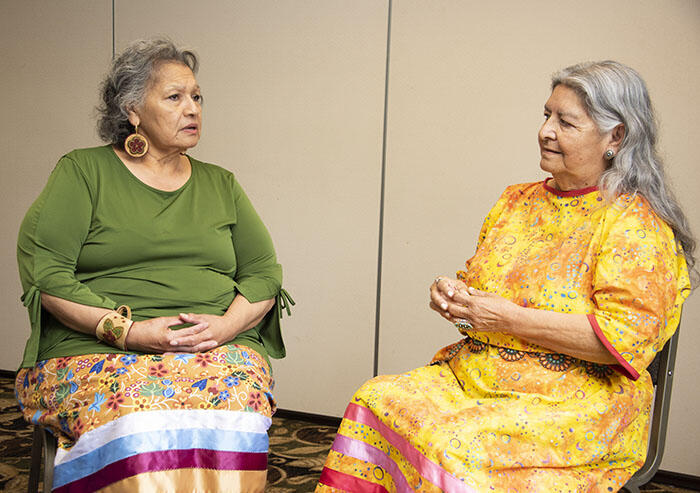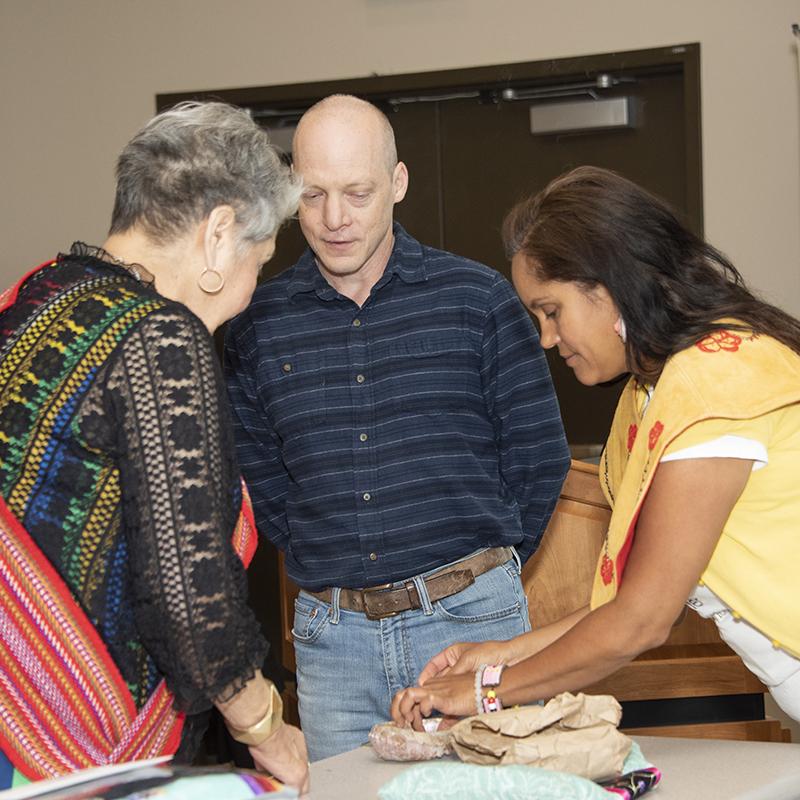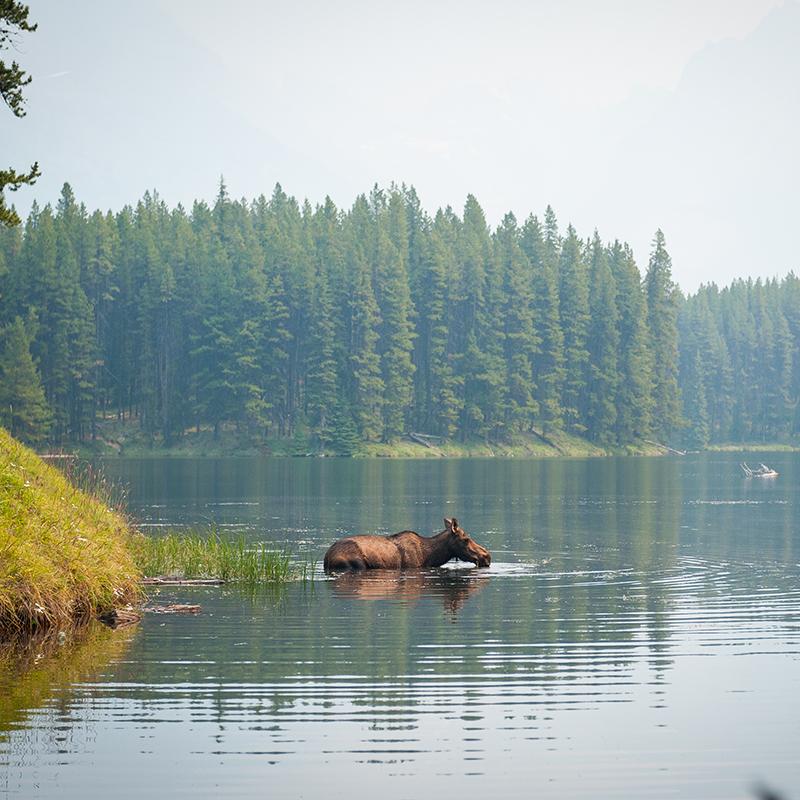Walking Together: Education for Reconciliation began as a professional learning project supporting Alberta’s teachers and school leaders with First Nations, Métis and Inuit foundational knowledge. In response to the Truth and Reconciliation Commission’s Calls to Action, the program developed in 2016 aligns with the Joint Commitment to Action signed by the ATA, the National Centre for Truth and Reconciliation and other education organizations in Alberta. The legacy of the ATA’s commitment continues to this day.
Our commitment to supporting the Calls to Action and the Indigenous-focused competencies and indicators, as outlined in the Leadership Quality Standard and the Teaching Quality Standard, includes resources, workshops and other professional development supports to enrich teachers’ and school leaders’ foundational knowledge.
Resources
Indigenous Education Initiatives Grant
This grant program supports projects that foster community connections while promoting reconciliation, justice and the celebration of Indigenous cultures
Read moreOpportunities
Indigenous education PD facilitator
Become an Indigenous Education professional development (PD) facilitator
Indigenous Education PD facilitators provide specific expertise to members related to the Indigenous-focused competencies and indicators, including the facilitation of Indigenous Education and Walking Together workshops. The Indigenous Education PD facilitators assist in developing and maintaining relationships with First Nations, Métis and Inuit Elders and Knowledge Keepers, including following local cultural protocols and sharing Indigenous education expertise for members, locals and various subgroups.
What do Indigenous Education PD facilitators do?
- Facilitate 7–10 workshops throughout the year
- Attend ATA training sessions, Professional Development Area Conferences and Summer Conference
- Provide ongoing support for members, locals and various subgroups in assigned regions related to Indigenous education and cultural protocols
- Support members in developing and maintaining relationships with local First Nations, Métis and Inuit Elders and Knowledge Keepers
Eligibility
You must
- be an active or associate ATA member,
- have five or more years of teaching experience and
- hold an Alberta teaching certificate.
How to apply
As a courtesy, please advise your superintendent and principal before you apply.
The application process has two parts:
1. Provide a letter of interest, including the following details:
- Areas of interest and expertise in Indigenous education
- Experience leading professional development
- Reasons for applying
2. Provide a resumé that outlines the following:
- Education
- Work experience
- Leadership experience
- Publications
- Presentations
- Volunteer experience
Send or e-mail your letter of interest and resumé to Melissa Purcell, ATA Executive Staff Officer, Indigenous Education, Alberta Teachers’ Association, 11010 142 Street NW, Edmonton AB T5N 2R1; e-mail melissa.purcell@ata.ab.ca.
In making application to become an Indigenous Education PD facilitator for the Alberta Teachers’ Association, you are voluntarily providing your personal information to the ATA. Visit the ATA website for more information.
wîcihtotân - a mentorship program for Indigenous teachers and school leaders
Named in nêhiyawêwin (Cree) by Elder Mary Cardinal Collins, wîcihtotân—meaning "let's help each other"—embodies the spirit of mutual support and community. wîcihtotân (pronounced weh-chee-tow-tan) has become a longstanding program of the Alberta Teachers' Association, designed to bring Indigenous teachers and school leaders together in a circle of learning, mentorship, and guidance.
The wîcihtotân program provides a unique and dedicated platform where Indigenous educators can connect, share their experiences, and cultivate a strong community of mutual support and professional development.
The wîcihtotân program comprises both virtual and in-person gatherings, creating opportunities for participants to engage in meaningful dialogue, knowledge exchange, and collective growth within a supportive and culturally affirming environment.
wîcihtotân gatherings are held three times throughout the school year (two online and one in-person).
Registration deadline to join the wîcihtotân gatherings is November 30th.
Please contact walkingtogether@ata.ab.ca for further information.
Indigenous Education Specialist Council
The Indigenous Education Specialist Council is open to all Indigenous and non-Indigenous educators.
It acts to
- facilitate professional development related to First Nations, Métis and Inuit education;
- advocate for First Nations, Métis and Inuit student issues;
- connect educators to Indigenous classroom resources specific to Alberta; and
- build capacity with the Alberta Teachers’ Association.
The Indigenous Education Council fosters relationships with Elders and Knowledge Keepers in each community to bridge the gap between the community and local schools.
Join IESC
Important dates
September 22—Treaty 7 Day
September 30—National Day for Truth and Reconciliation/Orange Shirt Day
October 4—Sisters in Spirit Day
November—National Indigenous Disability Month
November 7—National Inuit Day
November 8—National Indigenous Veterans Day
November 15—Rock Your Mocs
November 11-15—Métis Week
November 16—Louis Riel Day
January 4—National Ribbon Skirt Day
February 14—Have a Heart Day
March 31—National Indigenous Languages Day
May 5—National Day of Awareness for Missing and Murdered Indigenous Women, Girls, and 2SLGBTQQIA+ Peoples (MMIWG2SLGBTQQIA+)
May 10—Bear Witness Day
May 16—Moose Hide Campaign Day
June—National Indigenous History Month
June 6—Blue Jean Jacket Day
June 21— National Indigenous Peoples Day
June 21— Treaty 8 Day
August 23— Treaty No. 6 Recognition Day
Indigenous Peoples Atlas of Canada
This gym-size floor map engages students and teachers in the history of Indigenous Peoples. The map identifies the locations of Indigenous communities, residential schools and reserves, as well as the many Indigenous languages spanning Canada.
The kit includes
- a teacher’s guide,
- hard copies of all learning activities available for download,
- a gym-size floor map (10.7 m x 7.9 m) and
- a three-week loan period (free).
For more information or to book, e-mail walkingtogether@ata.ab.ca.
ATA Library
Discover numerous First Nations, Métis and Inuit resources available to borrow
Access the web guidesPartners
- Indigenous Education Council of the Alberta Teachers’ Association
- Indigenous Advisory Circle

The Association's Indigenous Advisory Circle consists of 11 First Nations, Métis and Inuit Elders and Knowledge Keepers from across the province. Meeting four times per year, the group provides guidance and feedback on Indigenous education programs and supports, such as workshops, resources, and cultural protocols.




